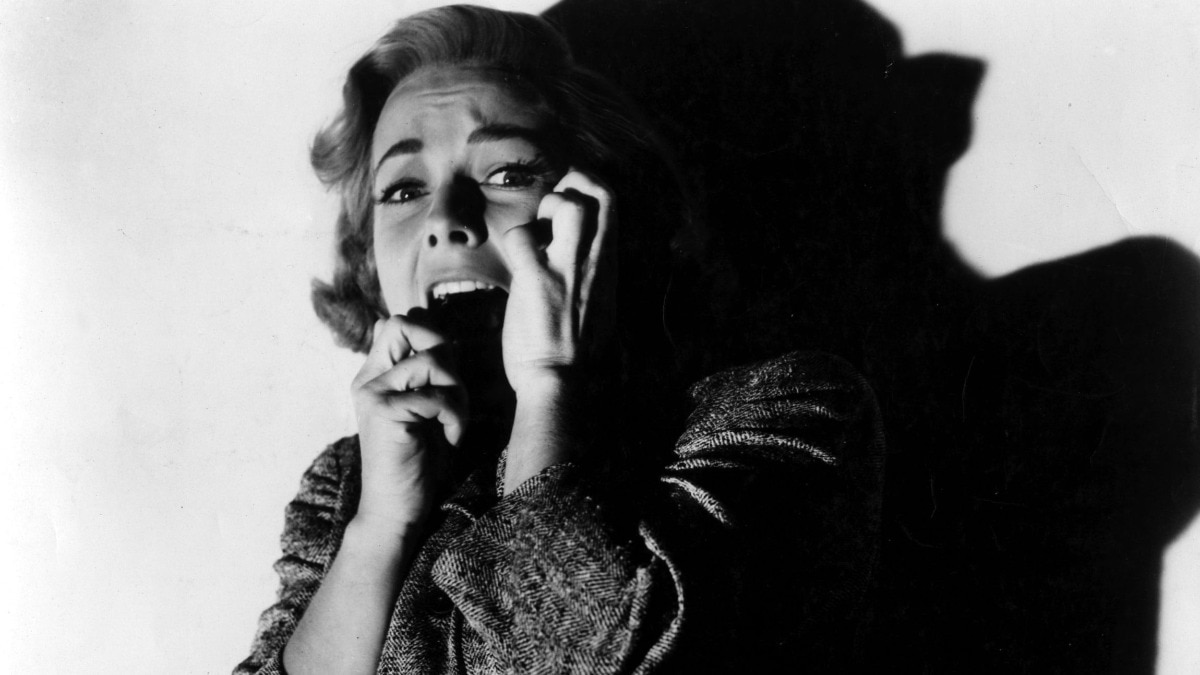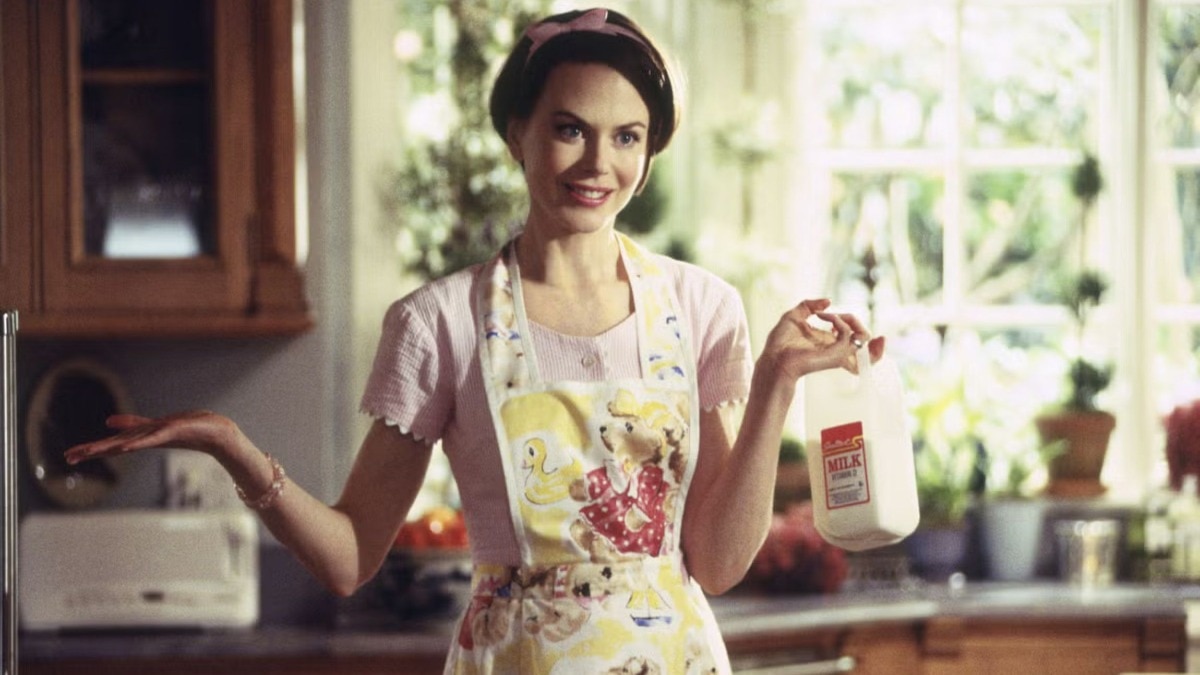
8 experts share empowering advice to help women manage menopause better
Pearls of wisdom for women entering a new chapter in their lives.


As I approach my 43rd birthday, I’ve decided it’s finally time to talk about the ‘m’ word: menopause.
Girlfriends, colleagues, mentors, sisters, and doctors have always shared their wisdom on what I can expect from different stages of my life, but when it comes to this universal female experience, the silence is deafening. Apparently, society still views the menopause as an embarrassing affliction to be kept under wraps.
Yet with three in five menopausal women reporting that their symptoms are having a negative impact on them at work, this is clearly an issues that calls for an urgent conversation. “Menopause remains a taboo for everyone; most of us don’t know the facts about it,” says Saska Graville, the co-founder of MPowered Women, a community of doctors and wellbeing experts dedicated to providing support for this stage of women’s lives. “We tend to sleepwalk into it in our mid-forties, having no idea what symptoms to look out for.” Hot flushes may be familiar from popular culture, but there are in fact 37 possible side effects, including brain fog, loss of confidence, and aching bones, not to mention changes to the skin and hair.
The entrepreneur Rebekah Brown was so disappointed by the paucity of intelligent treatments for these symptoms that she decided to launch her own supplement brand, MPowder. “I was turned away from the doctor for being too young,” she recalls, “but equally, I found it so confusing having to search through the dusty shelves of Holland & Barrett for remedies to ease hormonal changes.” With women over 45 making up more than 58 per cent of beauty consumers, which is a £27 billion industry, Brown spotted a huge gap in a growing market. “After all, we are the first generation that will be post-menopausal for half of our lives,” she points out.
Even the school curriculum now includes a requirement to teach pupils about the menopause, yet the beauty sector still appears to shy away from the issue: in fact, 74 per cent of women say its advertising fails to portray the experience of menopause with any sensitivity, according to a 2018 study. The truth is that not all of us want to hear about ‘anti-ageing’: we simply want to find ways to make the most of what could be the most joyful years of our lives. “Women entering their fifties are achieving more than ever before—they’re more likely to start businesses, follow new paths and find fulfilment,” says Brown. “Who would be “anti” that?”
Rather than presenting the process as something to fear, beauty brands have a responsibility (and, in fact, a commercial incentive) to offer a more open and upbeat image of getting older, and to develop products that truly meet women’s needs. Preparation is everything: so, whatever your age, here are some trusted recommendations from the industry’s most forward-thinking experts.

GOOD MOVES
Lee Mullins, founder, Workshop Gymnasium
Exercises that incorporate some sort of resistance training work well for anyone going through the menopause, as they build strength and lean muscle, improve bone density and metabolic rate, and boost mental health. This could include weight lifting, TRX, kettlebells, and body-weight training. Many womenstruggle with weight gain during menopause, so keeping active is essential: try to take at least 10,000 steps a day. Eating within a 12-hour window is another easy strategy to maintain calorie intake, while giving your gut a rest from digestion.
As ever, regular sleep is paramount, because it helps regulate hormones, appetite, and food cravings. Focus on getting at least seven hours—this will set you up in the best way possible to combat the challenges that come during menopause.
HAIR HACKS
Anabel Kingsley, trichologist
The shifting balance of oestrogens (female hormones) and androgens (male hormones) can cause hair loss during the menopause. This may be stressful, but there are things you can do. To treat thinning, apply antiandrogenic scalp drops every day, such as Tricho 7, which limits the effects of testosterone (responsible for reducing hair density) on follicles. Remember that your hair depends on what you eat in order to grow, and even the smallest deficiencies can have an impact. Get the nutrients you need with a diet rich in protein, vitamin B12, zinc, iron, and complex carbohydrates. Proteins are the building blocks of your hair, so it’s vital to consume enough of these every day.
SKIN SALVATION
Dr Sam Bunting, cosmetic dermatologist
Oestrogen is essential to maintaining a healthy skin barrier, producing regular collagen and hyaluronic acid, and balancing the impact of our blemish-promoting hormones. So when levels start to tank during the menopause, it’s best to have a plan—we lose as much as 30 per cent of collagen in the first five years.
1. Cleanse with care, using a non-foaming, perfume-free cleanser, applied with your fingertips. The water should be tepid, not hot.
2. Dry skin is prone to sensitivity, so seek out well-balanced formulas that contain barrier-repair ingredients such as niacinamide and ceramides to fortify the strength of your skin’s structure.
3. When it comes to active ingredients, I recommend the ‘collagen preservation’ kit of a topical retinoid, vitamin C and niacinamide, which also help to prevent breakouts that can occur as oestrogen levels drop.
MIND CONTROL
Dr Tara Swart, neuroscientist and author
Many women don’t know that anxiety can be the first and only sign of perimenopuase, before any physical symptoms. Depression can also occur, but it’s important to understand that this is normal and temporary. After menopause, some women report memory loss, especially verbal recall, which can prompt misplaced fears of early dementia. These symptoms generally improve with oestrogen replacement, while a healthy diet, gentle aerobic exercise and reducing alcohol consumption all help.
Testosterone levels become dominant after oestrogen and progesterone have declined. The good news is that some women find they have increased drive and ambition for their career.
TARGETED TREATMENT
Professor Janice Rymer, consultant gynaecologist
The perimenopause usually starts in our forties and is experienced very differently from woman to woman. Some may notice changes such as hot flushes, breast tenderness, fatigue and mood swings for years prior to their last period, while others may have minimal symptoms and for a short amount of time. Going through menopause, which happens to the average woman at the age of 51, can be challenging both mentally and physically, but there are a number of treatment options available. These include medication (the most effective is Hormone Replacement Therapy) and holistic strategies such as exercise, healthy eating and talking therapies. It is helpful for women to keep track of their menstrual cycle and noted own any symptoms to assist with diagnosis.
FUELLING CHANGE
Eve Kalinik, nutritional therapist
Because the decline in oestrogen can affect bone density, an adequate intake of calcium during the menopause is important. The most easily absorbed forms include full-fat ‘live’ yoghurt, cheese and kefir, while plant-based fortified milks are good for people who avoid dairy. Omega 3-rich foods may also help balance hormones—eat oily fish (salmon, mackerel, sardines) and flaxseeds.
Try to incorporate a sufficient amount of fibre into your diet from a variety of fruits, vegetables, nuts, seeds and wholegrains: you should aim for six different types a day. In real terms, this could equate to adding berries and nut butter to porridge or sprinkling seeds over soups and salads. Foods rich in phytoestrogen—soy (in the form of tempeh, miso or tofu), flaxseeds, sesame seeds and chickpeas—may be beneficial, as they ‘mimic’ oestrogen. Herbs that have shown to have some efficacy include sage, black cohosh and red clover.
Finally, looking after the health of the adrenals (the glands that produce stress hormones such as cortisol) is vital when transitioning into the menopause. Supplements can help—try magnesium or B and C vitamins—as can plants such as ashwagandha and rhodiola, classified as ‘adaptogens’, which can stabilise the adrenals and enable you to manage the response to stress better.
SUPPLEMENTARY SUPPORT
Dr Barbara Sturm, aesthetics doctor
Low oestrogen levels can diminish blood flow to the epidermis, leading to dry, itchy and irritated skin. As hormone levels decline, skin can look tired, develop more fine lines, and lose elasticity and glow. Many women also experience acne and skin-pigment changes; menopausal skin is more susceptible to UV damage, with a fall in melanocytes (the cells that produce the pigment melanin) causing deeper wrinkling and sun damage.
To counteract this, a good hydration-boosting moisturiser is essential, as is a broad-spectrum sunscreen to protect against UVA and UVB rays. My Skin Food supplement contains a powdered mixture of the plant extract purslane, an anti-ageing powerhouse packed with omega 3 fatty acids and vitamin C that promotes skin renewal and hydration, boosting collagen and reducing signs of irritation. Kudzu root can help reduce hot flushes, while glucosamine may relieve aches and pains.
ALTERNATIVE ASSISTANCE
Cal Wansbrough, acupuncturist
In Chinese medicine, the menopause is believed to result from a decline in the cooling, moistening and calming effects of the kidney ‘yin’, or essence, resulting in heat, drying and anxiety. Overactivity can further deplete these resources, so rest is vital to reduce the intensity and frequency of the flushes you are likely to experience. Meditation or calming yoga are great, but you can also minimise your consumption of alcohol and coffee, and foods that ‘heat you up’, such as red meat, curries, anything fatty or fried and, sadly, chocolate. Remember to decompress and cool off in the emotional sense too—repressed feelings can build up heat in our body. You may find that writing a journal helps, as can conversational therapy.
Lead image: Getty Images
Also read: A 33-year-old single woman's account of her experience freezing her eggs
Also read: Five essential reads for deepening your understanding and connection with your body










